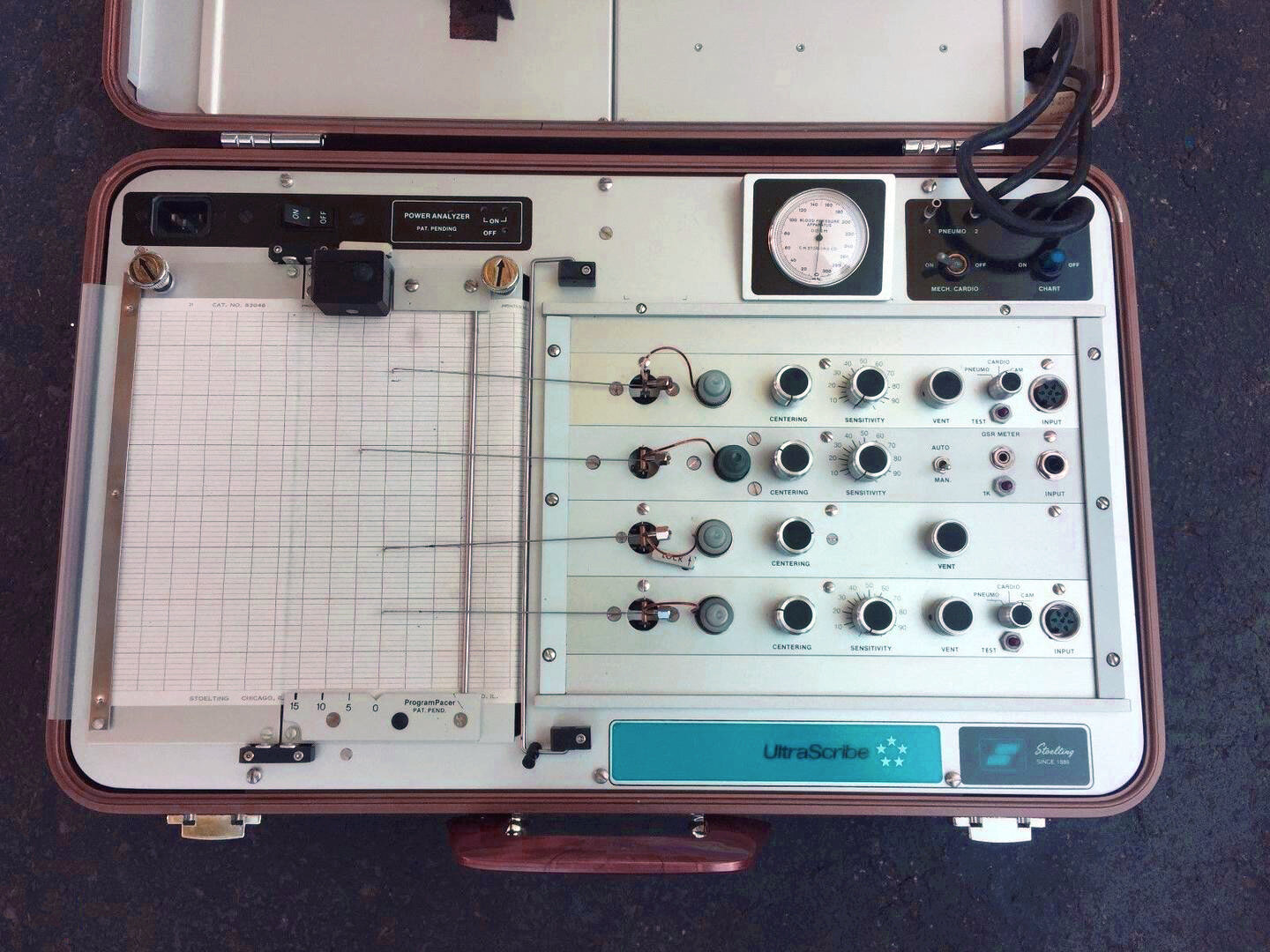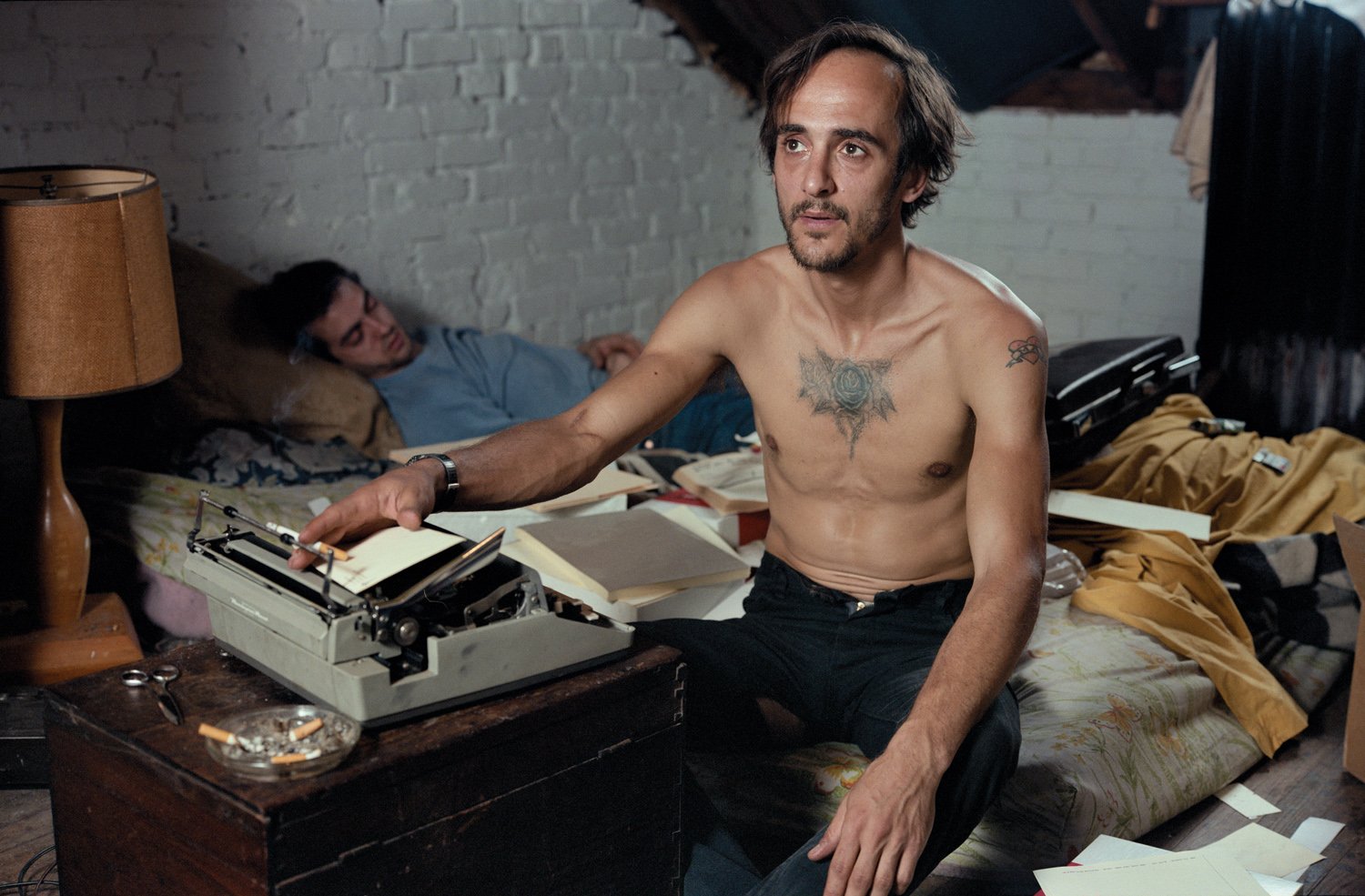Over the course of 2020, Brad Phillips and Gideon Jacobs are writing a 12-chapter "serial novella" for Autre. It will be written Exquisite Corpse style — they will alternate who writes each month's chapter, and won’t have access to the previous chapter until it has been published. Brad and Gideon have not discussed plot, structure, format, themes, characters, etc, and promise not to do so even once the project is underway. The idea is to react to each other's work, and hope the final Frankensteinian product is something that deserves to exist. If the authors like what they've made when it's done, the editors might publish it as a "zine." Installments will go up on the 15th of every month. Click here to read Chapter 1: G and B.
text by Brad Phillips (and Gideon Jacobs)
It could reasonably be posited that Bernardo’s statement at Guillermo’s funeral; “It’s true, there was no suicide....has anyone seen a body?” was in fact a true statement.
This is why Guillermo, as is the case with many people who like keeping their families on their toes, had made it clear in his Last will & testament that he would not abide an open-casket funeral. Just those seven words alone — ‘would not abide an open-casket funeral’ — implies that the putative dead person could object in the middle of the ceremony, raising themselves by sheer force of ab muscles, to demand that their casket be shut. Obviously, to be able to shout out from your casket that you’d prefer the lid closed would indicate that death had not entirely ‘taken.’ Open-casket funerals, whether by choice of the dead or their families, are ideal for those who’ve bought into the notion of that one, most problematic idea of the late, Oprah-influenced 20th century: the idea of closure.
Closure in relation to a casket is linguistically accurate. Closure in relation to the dead is psychologically silly.
Consider the expression often heard at funerals: “The dead live on in our memories; in our minds.” How truly frightening is this idea, and how much terror must it strike into the minds of grandchildren, now wary to experiment with masturbation should dead Uncle Dwayne or Aunt Cathy be watching from that place where they now reside; the mind of a horny child?
Guillermo had only ever given two pieces of advice to his two sons in their times spent in the dynamic. Bernardo had always thought his dad was ‘joking around.’
1. If you must drive drunk, eat a large spoonful of peanut butter before getting in the car, as this complicates the standard breathalyzer test.
2. If you cannot beat the breathalyzer test (or for any other reason are in the company of police officers) and are subject to a lie detector test, do not despair, you can beat that as well. It’s as simple as this: no matter what the question (the one you’re meant to be honest about—your name. The one you’re meant to lie about—did you mutilate the corpse), once that query is nearing its end and your answer is meant to begin, clench your asshole like you’re trying not to shit your pants on prom night. When we focus all of our attention on that one, tight sphincter muscle (the one most associated with shame and to some extent, relaxation and satisfaction), all systems regulate to assist in maintaining its closed status. You may appear to be sweating, you may have an elevated heart rate—you may show any of the signs that interest an expert polygraphist. Unless they’ve been trained by the Central Intelligence Agency, they will not be able to differentiate between the markers exhibited by liars, and the markers of someone who just happens to have high blood pressure and hyperhidrosis. “What is key,” he told his sons, “and this part is fucking important, is that no matter what, don’t think about the lie you’re keeping, don’t think about the fact that if you blow it you might end up doing a nickel in Ossining. You need to believe, as you’re strapped to that machine, that you are in fact on the verge of shitting yourself. And you need to remember that, like any reasonable individual, be they a murderer or a cashier at Homesense, nobody, nobody, wants to shit their pants in mixed company. You are only one thing while seated in that chair, wires hooked up to god knows where. You are a man with an intense, overwhelming need to eliminate his bowels in an environment where it would be extremely embarrassing to do so.”
I’d been writing this sort of ‘intellectual’ porn (which really, I can’t imagine working for anyone); stories about people like Gordon and Ben, massive insertions, strange insertions, illegal insertions, pay-to-play, hotel takeovers, huge wads on hairy backs (for which I received a small bit of payola from Semenax) for years. I can’t say I particularly enjoyed it. It started when I was in prison, because I was really unhappy with the way I was being sexually assaulted, and found that, similar to prison lawyers or elegantly literate men who could write love letters to women consigned to wait at home for their lovers to be released, I had a talent; a talent that would and did forestall a prolapsed rectum courtesy of Hank, Timmy, Big Timmy, Chinese Dwight, The Accountant, Liminal Phil, and Butch 3.
The series on Gordon and Ben, I actually had smuggled out by a friend and it ended up being published by Luridmax, an obscure French erotica publisher who focused mostly on golden shower and macrophilia narratives.
They are now out of business.
My brother Bernardo was right when he spoke of our father’s mercurial nature, the fact that he may have faked his own death—this was not out of the realm of possibility for Guillermo, but nonetheless, I am now the only living person who can both attest to the fixity of his death, as well as the manner of its deliverance.
Dad had easily convinced Bernardo that he was an ‘academic’ working on a thesis. There are two reasons this was done so easily. One is that my brother is a dipshit, an asshat and a moron. The other is that Bernardo could not and never was able to accept the the truth of what our father was: a criminal. He didn’t play violent video games as research for a thesis, he played them because he was a violent man who liked to play violent games.
I inherited this from my father, which is why I was the sole beneficiary of his will, the same will Bernardo and my sister are still battling over in a probate court somewhere, while I live off the full inheritance in Tenerife. My father taught me much more than my brother or sister about how to live in this world (I’m sure Bernardo has used the peanut butter and lie detector test advice dad gave us to amuse people at obnoxious academic parties for years). My dad taught me how to break the law and not get caught. Here are some things I was told, having become the favorite child early on when dad caught me stuffing a Snickers in my diaper at sixteen months:
1. Your best friends are leather gloves.
2. Three things to eliminate in a jam: teeth, hands and feet. DNA is popular, but it takes a while. Head in one bag, torso in another, arms and legs in a third, hands and teeth down a sewer grate. Dump the bag head in a residential garbage can thirty miles from where you dump the torso bag, and thirty miles from where you dump the arms and legs. Ideally, dump each bag in a different state. This causes the police to engage in typical jurisdictional squabbling and creates legitimate technical problems, which can give you an astonishing head start.
3. When choosing a new identity from the grave of a dead toddler in a cemetery, pick a common name. John Smith, Alan Phillips etc. Whatever you do, do NOT pick an antiquated sounding name — no Forbes Pennyworth DeQuincy, those sort of names draw attention no matter what.
4. Whenever possible, marry the new wife in international waters. She’ll think it’s romantic, what she won’t know is that it’s not legally binding. That way, should your bigamy ever come to light, you won’t be charged. You’ll just look like an asshole.
5. Always look like an asshole.
I loved my father Guillermo DeTorquido San Felipe (né George Lazard). One thing I loved more than George though, was and is money. I was taught about this love by my father, so I know that in the end, while he might not have been ready to die, he would have respected my move. This is what’s most important to me. That while I’m certain he would have preferred to keep living, I put an end to it in a way I know he’d genuinely respect.
Bernardo with his PhD in Ancient Music. Sophia with her moronic dentist husband Lyell who’d say sorry if you hit his car. Spineless, weak people. Not me. Never me.
“You may be a piece of shit, Carlo. You may be a shiftless predatory fuck, but you’re my son, and for fuck sake, you make me a helluva lot more proud than your brother and sister, living their lives inside the lines. Honestly if I didn’t have warrants out at the time, I would’ve stuck em’ both in a sleeping bag full of rocks and thrown them in the river.”
Words like these from a parent, they feel real good.
It happened like this.
My dad had just finished a three-year bit. Bernardo and Sophia thought he’d been living in Tucson, running a ‘workshop’ on some type of bullshit.
I was looking at eleven more months of a six-year sentence for felony battery. Dad had been the only one who visited me (or the only one I allowed to visit) during that time. It was on one of his last visits that he told me he’d cut my siblings out of the will, because, as he put it rather succinctly, “Fuck em.”
By the time I made it back to my cell, I had the entire thing planned perfectly. I almost wanted to call my dad and tell him, but….
My cellmate, John Allan Richards, had terminal lung cancer, was facing compassionate early release after serving almost twenty years for bank robbery. We’d developed a good, quasi-paternal relationship over our time together. Once I learned about the will, I told John that, since he’d be getting out, and since he wouldn’t have much time left out there, I had a story to tell him. I wasn’t asking per se, but I knew that since his doctors had told him he should already be dead, that old-fashioned prison ethics would steer him in the direction I needed.
Look John, I never wanted to bring it up — it’s too hard, this sort of language. I told him how my father Guillermo had molested my sister Sophia from when she was five to thirteen. John had three daughters. It would strike him where I needed him struck. “Jesus fucking Christ, Carl. This is no good. No, this is just no good. And he’s out there still?”
I told him he was.
“I sort of suspected John,” I told him. “Sophia was always sick, always sad, had no friends, acted too clingy when I brought male friends home. I knew my dad, I knew he was a sick fuck, there wasn’t anything I’d put past him. But it wasn’t until I was sixteen, going through his VHS collection looking for porn that I found the tape. It was the only one with a handwritten label.”
“What’d it say?” he asked, looking already like he wanted to reach through the prison, send his arm through the streets of Philadelphia and rip my dad’s throat out.
“It said ‘Little Blondes’...”
“For fuck sake!” he cut me off.
“I know, I know. I put the tape in. Well, there she was John, Sophia. I turned it off right away. I knew there’d be other blondes. I mean, fuck sake, she was mostly a redhead.”
“Alright, Carl. I want to help you with this. Cause this…I can’t abide this.”
It’s not just a myth of film and television that pedophiles are considered to be subhuman scum in prison. Just as in the real world, they’re seen as such. Everything came into motion so easily. He actually coaxed the information out of me, which was beautiful. I told him where my father lived and where my father drank, because I knew those things. He was still sending me letters, often just written on coasters from the bar. John’s date was coming up soon. The cancer had spread to his brain, he was starting to forget things and would wake up with subdural hematomas that looked like mandarin oranges. I think I’m making my point.
Carl was released on June 15th, 2009. We had a party for him, Vino brought an empty Tide container of his best pruno. At the end, when he was leaving the cell, Carl took my head in his hands and looked me in the eyes.
“I got this, John. Fuck this bullshit. I can’t abide it. I just cannot abide it. Plus, it’s likely bullshit, but maybe if I can do one good thing in this life, make some stab at redemption or whatever, God might not shit on me so heavily.”
I told Carl I loved him. I did love him. Then I slipped him the piece of paper with my father’s address on it.
July 3rd, it was in the news, which is how I heard about it first. It took Bernardo a few days to call and tell me, probably ‘cause he was playing the ocarina or some bullshit at a recital in Sonoma or Marfa.
Guillermo DeTorquido San Felipe, aged 69, was leaving the bar he drank at regularly to walk to his home three blocks away. In the neighborhood, most people avoided San Felipe. They heard he’d done some shit, and he never smiled. But, if you had a flat, he was gonna fix it for you. As he approached his home, John Allan Richards, notorious for a bank robbing spree that stretched from Abilene to Austin and released from prison weeks before on compassionate grounds, approached San Felipe in the middle of the street, brandishing a handgun and visibly limping. He was heard to shout, “Hey, short eyes!” immediately before pressing his revolver against San Felipe’s head and pulling the trigger. San Felipe died instantly. Richards did not run or hide his gun. Instead he sat on the curb next to the body. When the police came he was taken to central booking. There was no clear motive for the slaying, and police were perplexed as to why a man who’d just been released after serving two decades in the penitentiary would execute what appeared to be a stranger, resulting in his return to the penitentiary.
For three days, police questioned Richards. They pressed for his motives, enquired as to his relationship to the victim—these sort of police questions. Richards would only say one thing: “He had it coming.” Police were at a loss to understand. San Felipe had served his time in prison, mostly for wire fraud or the occasional aggravated assault. There was nothing that would explain a revenge-motivated execution in the middle of the street.
On his fourth day of interrogation, Richards asked Detective Leslie Morris to get him a Sprite. He said his mouth was dry from “talking to you fucking goofs for so long.”
When Detective Morris returned to interview room eight, Richards lay slumped on the floor, dead. An autopsy later revealed him to be stuffed with tumors, and his personal physician later stated his surprise that Richards was still living.
The will went through probate quickly. I received very little in terms of liquid assets or investment products. I did, however, inherit an antique briefcase. Inside this briefcase was a small card — “It’s a boy!” The envelope held the key to a storage space. The day before the funeral, I rented a car and drove for an hour. Behind a bunch of lamps and stolen dishwashers I found a suitcase containing one and a half million dollars in small bills.
Once my lawyer informed Bernardo and Sophia’s lawyers that the will was incontestable, Sophia apparently expressed surprise that I was alive. I hadn’t seen them for over fifteen years.
At the internment, I stood mixed in with a group of mourners at a nearby funeral while Guillermo’s was happening. I watched Bernardo deliver his ‘clever’ speech, and Sophia her saccharine one. Once everyone was gone, I left a bouquet of tulips and a bottle of Wild Turkey on dad’s grave. I didn’t want anyone to see me. I’m sure nobody wanted to see me either.
Before I left for Tenerife, I paid for John Allan Richards’ tombstone. He had no family, and no money, and would’ve been buried in a potter’s field. He’d done me a great service, and really, John had never done anything worse than rob a bank. A thing that, really, all of us are entitled to try.
For more from Brad Phillips, follow @brad___phillips on Instagram. Click here to read Chapter 3: Luridly Liminal / Liminally Lurid.
















